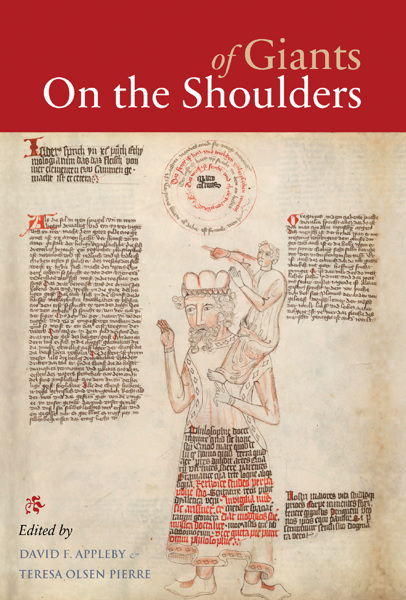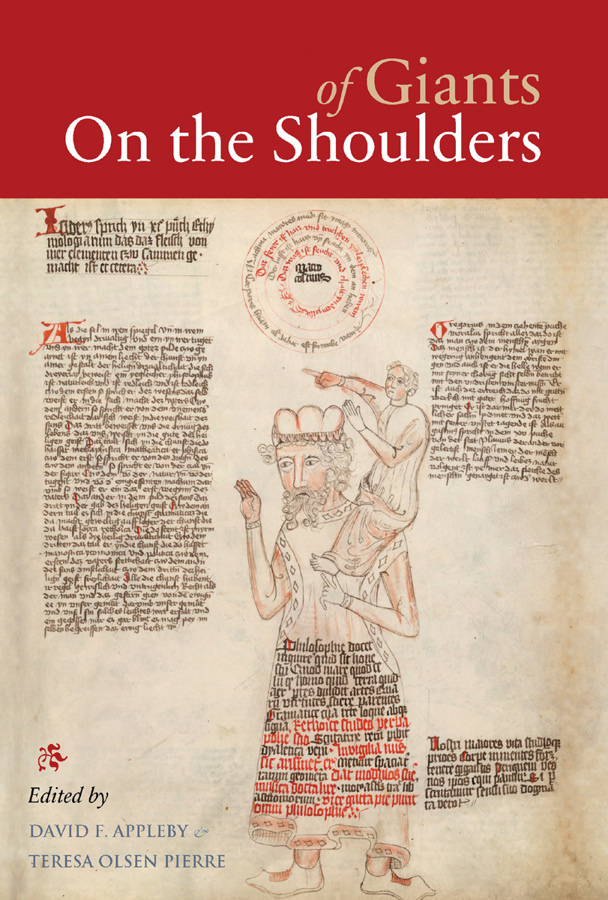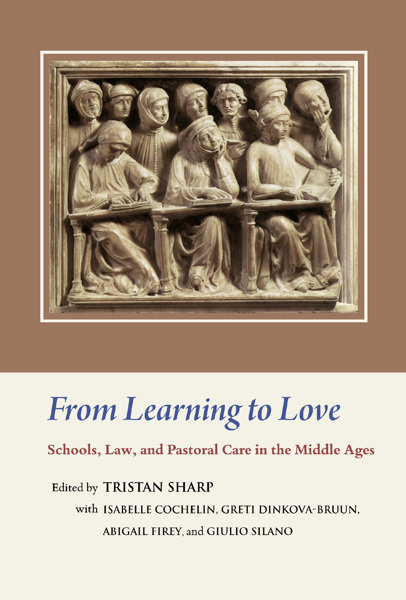
On the Shoulders of Giants: Essays in Honor of Glenn W. Olsen
David Appleby, Teresa Olsen Pierre (eds)
- Pages: 262 p.
- Size:150 x 230 mm
- Illustrations:2 b/w
- Language(s):English
- Publication Year:2016
- € 85,00 EXCL. VAT RETAIL PRICE
- ISBN: 978-0-88844-827-9
- Hardback
- Available
The allusion in the title to the dwarf on the shoulders of the giant underscores the central themes of this collection: the debt each generation owes to the intellectual achievements of those that precede it, the continuous interpenetration between the present and the past, and the place of tradition as well as change and renewal in culture and history. The topos is particularly apt for this volume, for it allows students and colleagues to express their own distinctive debts to Glenn W. Olsen, a formidable scholar, respected advisor, and cherished friend.
Medieval in focus but also of broader chronological range, the essays in the volume encompass such diverse topics as the body, identity, and sexuality, the discourses of colonialism and narratives of history, as well as the conflict between an idealized primitive past and the progression towards a redeemed future. The first section examines the persistence of the authority of the past in the thought and language of authors who understood their circumstances primarily by reference to the past, even as they moved inexorably into the future. Processes of change and growth through the clash between novelty and tradition, and the conflicting standards and competing norms such conflict produces, form a central preoccupation of the essays in the second part. Together, they reveal how renewal through the use of traditional ancient sources sometimes impelled both intellectual thought and institutions in unforeseeable and sometimes unwelcome directions. A third group of essays centres on the concepts of Christian renewal and reform, both individual and collective, in the ascetic and monastic contexts but also in popular piety, as well as the medieval perspectives on the body, gender, marriage, and sexuality. Part four surveys the rejection of tradition and the inescapability of the past in any endeavour to transcend it. Like the essays collected here, which explore the theme of how one generation understands itself in relation to the past as it moves into the future, we hope this volume will be used as a starting point for future generations of scholars seeking to plumb the depths of the past as they chart their own ways forward.


